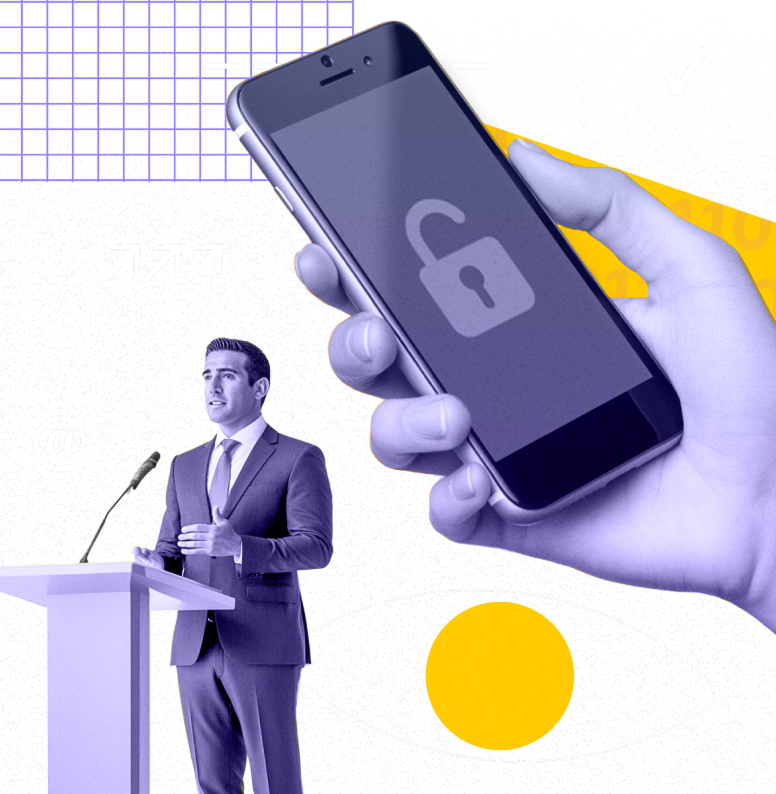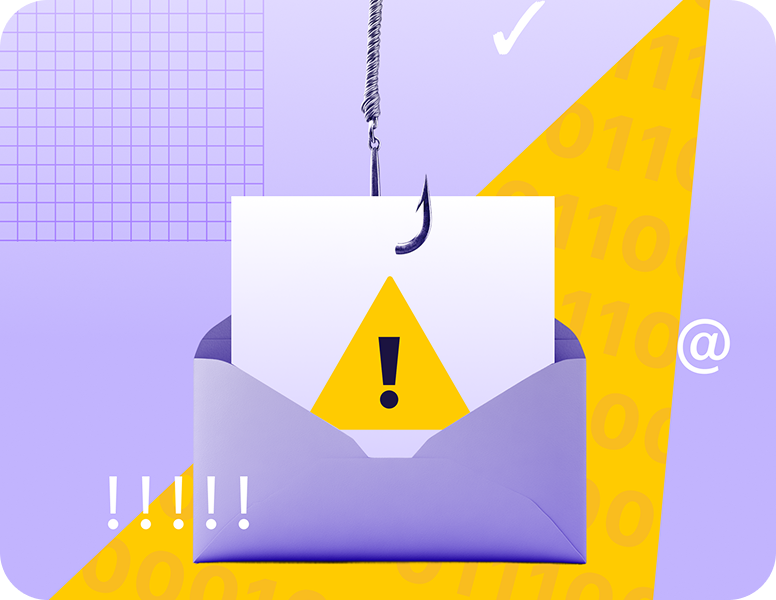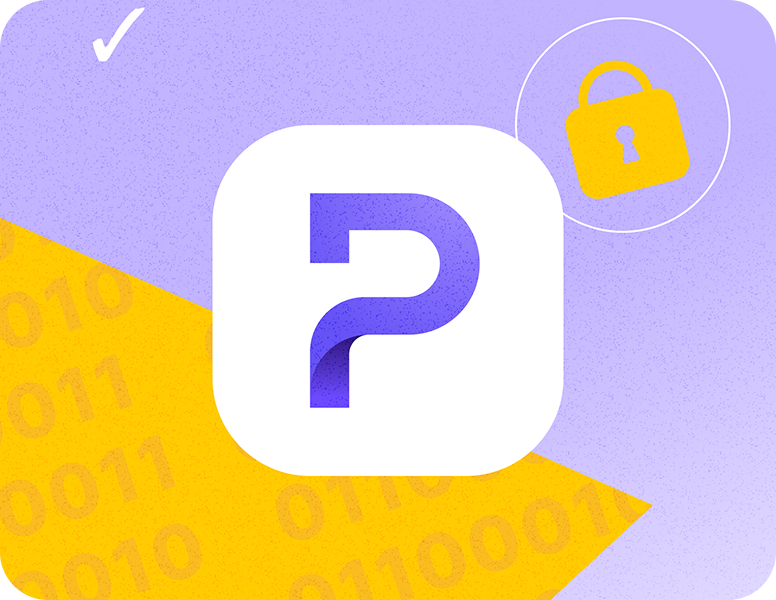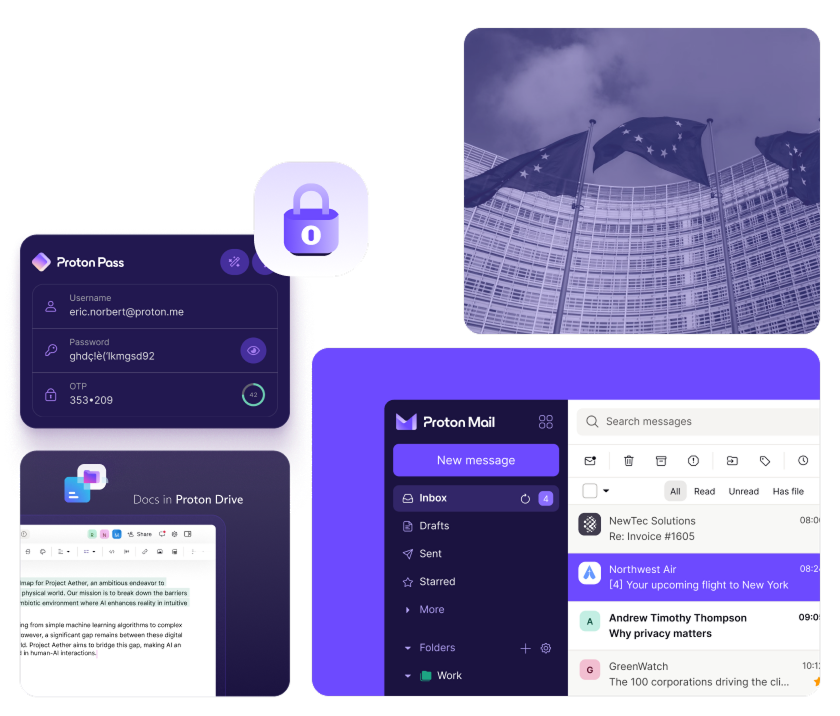Gelekt: e-mails en
wachtwoorden van politici op het dark web

Meer dan 4.300 overheidsfunctionarissen in Europa en de VS hebben ontdekt dat hun officiële e-mailadressen — en zelfs wachtwoorden — op het dark web zijn gelekt.
Politici en medewerkers gebruiken hun officiële e-mailadressen om zich in te schrijven voor alledaagse accounts, zoals sociale media, nieuwssites en dating-apps. Als (of wanneer) deze diensten een schending ondervinden, kunnen aanvallers deze e-mailadressen gebruiken om eenvoudig doelwitten met een hoog profiel te identificeren.
Voor de gemiddelde persoon is dit een ernstig privacyrisico. Voor openbare functionarissen is het een potentiële dreiging voor de nationale veiligheid.

Voor dit onderzoek hebben we het dark web doorzocht naar informatie die verband houdt met de openbaar beschikbare e-mailadressen van overheidsfunctionarissen. In veel gevallen hebben we ontdekt dat zeer gevoelige informatie — inclusief wachtwoorden — vrij beschikbaar was op bekende criminele fora.
Dit vormt een duidelijk cyberbeveiligingsrisico als deze personen wachtwoorden hergebruikten voor meerdere diensten. Maar het brengt ook een extra risico met zich mee omdat de beschikbare persoonlijke gegevens deze functionarissen blootstellen aan chantage of social engineering.
Accountbeveiliging is ongelooflijk belangrijk en kan gemakkelijk verkeerd gaan. Het is van vitaal belang dat we allemaal stappen ondernemen om onszelf te beschermen — met tools zoals een wachtwoordbeheerder of e-mailaliassen — want als zelfs politici met een hoger dan normaal bedreigingsmodel fouten kunnen maken, kan iedereen dat.
Dit onderzoek zou niet mogelijk zijn geweest zonder de hulp van Constella Intelligence(nieuw venster).
Hoe wijdverspreid is het probleem?
Instelling | E-mailadressen doorzocht | Geschonden e-mailadressen | Percentage geschonden e-mailadressen | Blootgestelde wachtwoorden | Wachtwoorden blootgesteld in tekst zonder opmaak |
|---|---|---|---|---|---|
Britse Lagerhuis | 650 | 443 | 68% | 284 | 216 |
Europees Parlement | 705 | 309 | 44% | 195 | 161 |
Deens Parlement | 179 | 74 | 41% | 93 | 69 |
Leden van de Nationale Raad van Oostenrijk | 183 | 45 | 25% | 48 | 39 |
Amerikaanse politieke medewerkers | 16.543 | 3191 | 20% | 2975 | 1848 |
Frans Parlement | 925 | 166 | 18% | 322 | 320 |
Nederlands Parlement | 225 | 41 | 18% | 35 | 32 |
Zwitserse federale politici | 277 | 44 | 16% | 78 | 58 |
Luxemburgs Parlement | 60 | 10 | 16% | 43 | 38 |
Italiaans Parlement | 609 | 91 | 15% | 195 | 188 |
Duitse deelstaatparlementen | 1874 | 241 | 13% | 220 | 153 |
Spaans Parlement | 615 | 39 | 6% | 14 | 9 |
Belangrijkste hoogtepunten uit de gegevens
Britse Lagerhuis: Meest blootgesteld
Het Britse Lagerhuis had het hoogste percentage van officiële e-mailadressen van politici dat blootgesteld is bij schendingen van alle instellingen die we tot nu toe hebben onderzocht. In totaal zijn de officiële e-mails van Britse politici 2.311 keer blootgesteld op het dark web. Eén parlementslid had alleen al 30 keer zijn gegevens blootgesteld.
Eerdere aanvallen
In december 2023 beschuldigde de Britse overheid Rusland(nieuw venster) van een “jarenlange cyberaanval” op Britse academici, politici en beleidsmakers.
Deens Parlement: Meest herhaalde blootstellingen
Europees Parlement: Wijdverspreide lekken
Zwitserse federale politici: weinig schendingen (maar sommige zijn gênant)
Duitse deelstaatparlementen: Drie deelstaten falen op het gebied van cyberbeveiliging
In totaal zijn de officiële e-mailadressen van slechts 13% van de Duitse deelstaatpolitici blootgesteld op het dark web, het op één na laagste percentage dat we hebben gevonden. Er zijn echter drie deelstaten waar ten minste de helft van de politici blootgestelde e-mailadressen en andere gegevens heeft: Sachsen-Anhalt, met 67%; Rheinland-Pfalz, met 51.1%; en Bremen, met 50%.
Eerdere aanvallen
In 2024 werden de Frankfurt University of Applied Sciences(nieuw venster) en de Hochschule Kempten(nieuw venster) gedwongen te sluiten vanwege cyberaanvallen, werd het Beierse farmaceutische gigant AEP getroffen door een ransomware-aanval(nieuw venster), en werd de Sociaal-Democratische(nieuw venster) partij (SPD) gehackt.
Italiaans Parlement: Derde minste lekken
Luxemburgs Parlement: Eén politicus had meer dan 20 wachtwoorden blootgesteld.
Spaans Parlement: Verreweg de minste lekken
Amerikaanse politieke medewerkers: Een groot risico
20% van de Amerikaanse politieke medewerkers had blootgestelde door de overheid toegewezen e-mailadressen, het op vier na hoogste percentage dat we hebben gevonden. (Het percentage politici met blootgestelde e-mails in Denemarken, dat op de derde plaats staat, is echter twee keer zo hoog.) We hebben Amerikaanse politieke medewerkers onderzocht omdat Congresleden niet altijd hun officiële e-mailadressen publiekelijk delen. Ongeveer 10% van de blootgestelde medewerkers zag hun gegevens meer dan 10 keer verschijnen in databases op het dark web.
Eerdere aanvallen
In 2024 probeerde een onbekende aanvaller, die zich voordeed als Senate Majority Leader Chuck Schumer, tientallen senatoren te phishen(nieuw venster) via sms-berichten.
Frans Parlement: Sterke beveiliging – behalve bij één parlementslid
Nederlands Parlement: Inconsistente cyberbeveiliging
Nationale Raad van Oostenrijk: 1 op de 4 politici blootgesteld
Waarom dit van belang is
Het is belangrijk op te merken dat deze lekken geen bewijs zijn van hacks van overheidsnetwerken. Deze e-mailadressen werden blootgesteld door schendingen bij diensten zoals LinkedIn, Dropbox, Adobe en anderen.
Toch, wanneer het e-mailadres van een politicus of medewerker wordt blootgesteld, is het meer dan alleen een ongemak — het is een signaal aan aanvallers dat dit een doelwit van hoge waarde is.
Politici met blootgestelde accounts die hun officiële e-mailadres gebruiken lopen meer risico op:
Phishing: Aanvallers kunnen gerichte social engineering-aanvallen uitvoeren met gelekte persoonlijke gegevens of data uit kwetsbare accounts.
Chantage: Aanvallers kunnen gevoelige of persoonlijke informatie gebruiken voor dwang.
Overnames van accounts: Als functionarissen blootgestelde wachtwoorden hergebruikten, zouden aanvallers overheidssystemen kunnen infiltreren.

Hoe Proton Pass u beschermt
Hide-my-email aliases: Gebruik unieke e-mailaliassen in plaats van uw echte e-mailadres bloot te stellen
Veilige wachtwoordbeheerder: Genereer en sla sterke, unieke wachtwoorden op voor elk account
Passkey-ondersteuning: Maak uw inlogbeveiliging toekomstbestendig met phishing-bestendige passkeys
Ingebouwde 2FA-codegenerator: Sla uw inloggegevens en 2FA-codes op in één versleutelde kluis
Dark Web Monitoring: Ontvang meldingen als uw Proton-e-mailadressen of aliassen in datalekken verschijnen
Proton Sentinel: Verdedig uw Proton-account proactief tegen overnamepogingen

Neem de controle over uw beveiliging
Klaar om uzelf te beschermen?
Gebruik geen wachtwoorden opnieuw
Gebruik uw professionele e-mailadres nooit voor dagelijkse accounts
Gebruik aliassen om uw echte e-mailadres verborgen te houden
Laat Dark Web Monitoring u waarschuwen bij schendingen
